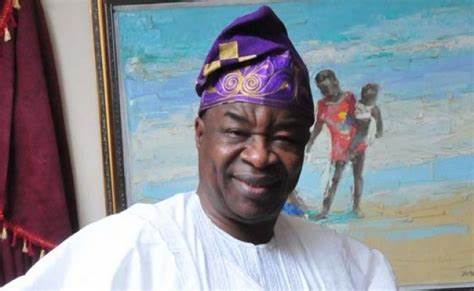Veteran Nigerian showbiz icon Wale Adenuga, MFR, has openly criticized Netflix for its approach to the Nigerian film industry.
In a candid statement, Adenuga called for greater transparency and fairness in the platform’s dealings with Nigerian filmmakers. His remarks shed light on the challenges and missed opportunities in showcasing the best of Nollywood to a global audience.
Adenuga began by addressing Netflix’s entry into the Nigerian market, describing it as a test run. He alleged that the streaming giant quickly abandoned its efforts, leaving behind a trail of unfulfilled potential.
“Let’s talk about Netflix,” he said. “We, the older generation, can’t stand it when lies are celebrated, and the truth is silenced. Yes, Netflix—along with other international, profit-driven platforms—came to Nigeria to test the market. But alas, after a short time, they packed up and took the next available flight back home!”
Flawed selection process
The filmmaker argued that Netflix’s failure in Nigeria was not due to economic conditions or the greed of local producers. Instead, he pointed to a flawed foundation, particularly in the selection process for Nigerian films.
“The problem lies in the corrupted and poor selection process of movies,” Adenuga said. He accused Netflix of prioritizing the fame and connections of producers over the creativity and quality of their films.
This, he explained, created a system that marginalized talented filmmakers while rewarding mediocrity. Adenuga compared the current crop of Netflix-supported movies to those produced by legends like Tunde Kelani and Zeb Ejiro.
According to him, the latter offered far more captivating stories than the current selection.
“Many of the films featured on Netflix were far from the best Nigeria could offer,” he said. “The truly gifted filmmakers languished in towns and villages simply because they lacked the right connections.”
Backdoor dealings and missed opportunities
Adenuga didn’t hold back in describing the backdoor dealings he believes have plagued the industry. He alleged that wealthy producers monopolized access to international representatives, using lavish parties and personal connections to secure contracts.
“In return, just two producers land contracts meant for twenty,” he said. These individuals, he claimed, often lacked real directing or producing skills. Instead, they relied on the talents of others, taking credit for work they did not create.

Call for change
Adenuga urged Netflix and similar platforms to adopt a more inclusive and transparent approach. He proposed a democratic process where all Nigerian producers, regardless of status or wealth, could submit their work for consideration. “Let them submit synopses of their work, coupled with perhaps one-hour productions, and sift through them to find the best,” he suggested.
This method, he argued, would ensure that the selected films truly represent Nigeria’s talent and culture. He emphasized that a compelling story resonates more with Nigerian audiences than technical perfection. “A good movie that scores 90% on storyline and 50% on technicalities will be far more embraced by the Nigerian audience than a movie with a 90% technical score but only 50% on storyline,” Adenuga noted.
Hope for progress
The veteran filmmaker expressed hope that Netflix has learned from its past mistakes and is taking steps to correct them.
He called on the platform to embrace fairness and give every Nigerian filmmaker a chance to shine. “If Netflix—or any international platform—wants to acquire the best of Nigerian films, they must adopt a democratic and transparent selection process,” he concluded.
Adenuga’s remarks highlight the potential for platforms like Netflix to play a transformative role in Nollywood.
However, achieving this requires a shift in priorities—one that values creativity, fairness, and the authentic Nigerian experience over connections and influence.
By addressing these issues, Netflix could unlock the true potential of Nigerian cinema, showcasing the rich stories and talents that have long defined Nollywood.
Read Also: Netflix exits Nigerian market amid economic struggles
Kunle Afolayan: Netflix isn’t leaving Nigeria